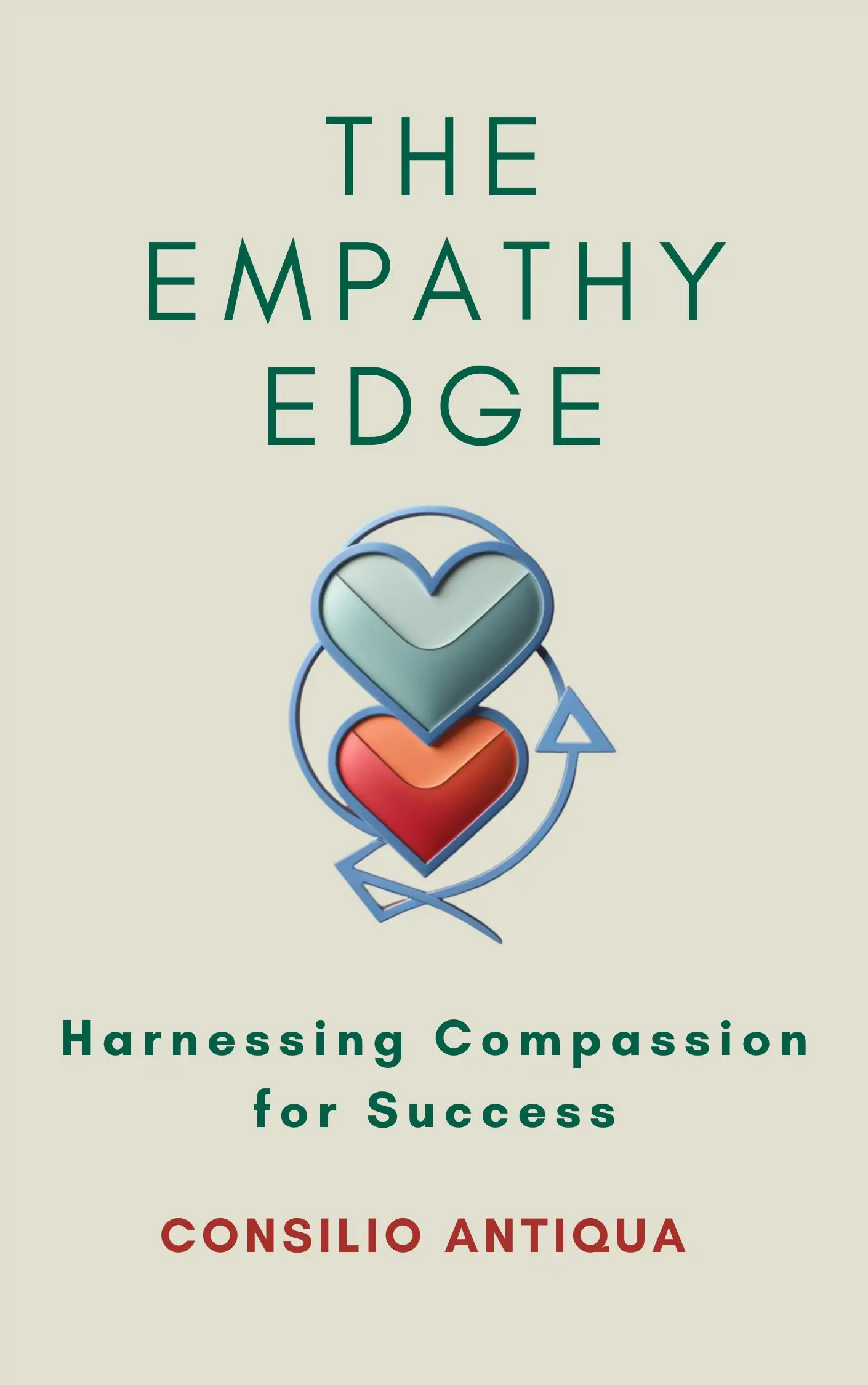
The Empathy Edge | Chapter 15: Empathy in Healthcare
Chapter 15: Empathy in Healthcare
Picture this: You're sitting in a sterile exam room, heart pounding, a knot of worry twisting in your gut. You're facing a health challenge, maybe even a life-altering one. The doctor walks in, clipboard in hand, and rattles off a series of questions, barely making eye contact. Do you feel heard? Seen? Cared for? Probably not.
Now imagine a different scenario. The doctor sits down, leans in, and truly listens. They ask about your fears, your hopes, your life beyond the diagnosis. They explain things clearly, patiently answering your questions. They offer a reassuring touch, a warm smile. Suddenly, the sterile room feels a little less cold, the fear a little less intense. That, my friend, is the power of empathy in healthcare.
More Than Just a Nice-to-Have: Empathy's Impact on Patient Care
Empathy isn't just about being nice; it's a crucial ingredient for effective healthcare. When patients feel understood and respected, they're more likely to trust their providers, follow treatment plans, and actively participate in their own healing. Studies have even shown that empathy can lead to better health outcomes, from reduced pain levels to faster recovery times.
Think about Maria, a young mother diagnosed with breast cancer. Her oncologist, Dr. Chen, not only explained the medical details but also took the time to understand Maria's anxieties about her children, her career, her future. Dr. Chen's empathy helped Maria feel empowered to face her treatment with courage and hope.
Here are some simple yet powerful ways healthcare providers can weave empathy into their practice:
- Truly Listen: Put down the clipboard, make eye contact, and really hear what your patients are saying – both the words and the emotions behind them.
- Validate Feelings: Acknowledge and validate your patients' emotions, even if you don't necessarily agree with their perspective. A simple "I can see how frustrating this must be for you" can make a world of difference.
- Speak Plainly: Medical jargon can be confusing and intimidating. Explain things in clear, easy-to-understand language, ensuring your patients feel informed and involved in their care.
- Offer a Human Touch: A gentle hand on the shoulder, a warm smile, a moment of shared silence – these small gestures can convey deep care and compassion.
Empathy: The Secret Weapon Against Burnout
Healthcare is a tough gig, no doubt about it. Long hours, intense pressure, and constant exposure to suffering can take a toll on even the most dedicated professionals. But here's the good news: empathy can be a powerful shield against burnout.
When you connect with your patients on a human level, you're reminded of the "why" behind your work. You see the impact you're making, the lives you're touching. This sense of purpose can fuel your resilience and keep you going, even when things get tough.
Here are some ways healthcare professionals can nurture their own empathy and protect themselves from burnout:
- Practice Mindfulness: Take a few moments each day to simply breathe, be present, and connect with your inner self. This can help you stay grounded and manage stress.
- Talk It Out: Share your experiences with colleagues, friends, or a therapist. It's okay to acknowledge the emotional challenges of your work and seek support.
- Prioritize Self-Care: Make time for activities that bring you joy and replenish your energy – whether it's yoga, hiking, reading, or simply spending time with loved ones.
Empathy: Building a Healthier World, One Connection at a Time
Empathy isn't just important in the doctor's office; it's essential for creating a truly equitable and effective healthcare system. It means understanding the social, economic, and cultural factors that influence health, especially in communities facing disadvantages.
For example, imagine a public health campaign aimed at reducing childhood obesity. An empathetic approach would involve understanding the challenges families in low-income neighborhoods might face, such as limited access to healthy food, lack of safe places to play, and exposure to unhealthy marketing. By addressing these root causes, we can create interventions that are truly meaningful and sustainable.
Your Turn: Reflecting on Empathy in Your Healthcare Journey
Take a moment to think about your own experiences with healthcare. Can you recall a time when a healthcare provider's empathy made a real difference for you? What did they do that made you feel seen and supported?
Now, consider a time when you felt a lack of empathy in a healthcare setting. What could have been done differently? How did that experience impact you?
Remember, empathy isn't about being perfect; it's about making a conscious effort to understand and connect with others. Even small acts of kindness and compassion can have a profound impact on the lives of patients and healthcare providers alike.
In the next chapter, we'll explore the vital role of empathy in education. But for now, let's carry the spirit of empathy with us, striving to create a healthcare system that truly honors the human heart at the center of healing.
